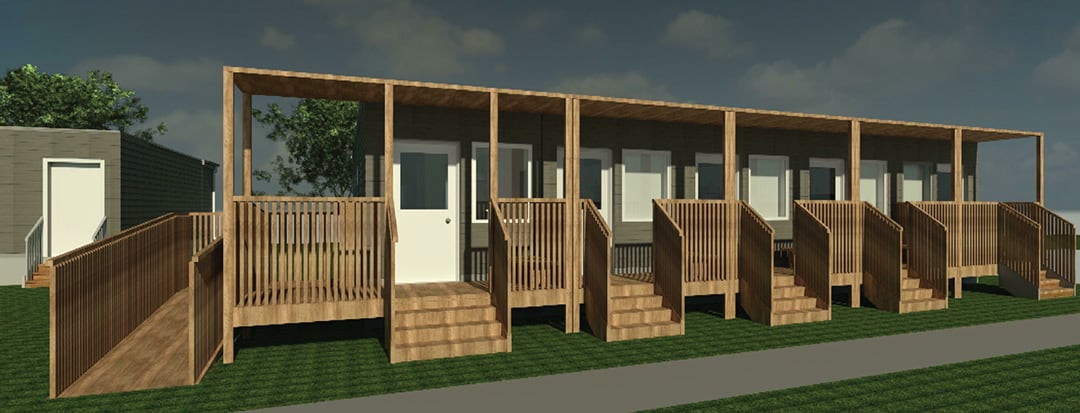Micro-Home project to temporarily house people experiencing homelessness begins installation in Oshawa
Published January 13, 2022 at 1:38 pm

Shovels are going in the ground to install Durham Region’s micro-home project in downtown Oshawa this week.
The program was a approved for expedited development by the Region back in July 2020, “due to an urgent need for affordable and supportive housing.”
The units represent a transitional housing project designed to bridge the gap between homelessness and a permanent residence.
Occupants will stay in the micro-home for a limited period, during which they’ll receive life-skill education, mental health and addiction supports and/or financial assistance, tailored to their individual needs.
This period is designed to prepare participants to manage a permanent residence, and help them find a new home. Given the projects time-limited nature, residents will sign a participation agreement instead of a lease, ensuring engagement with the program’s supports. ‘
Micro-home units are scheduled to be installed this week to offer transitional housing with supports in @OshawaCity. 💙🏘️ This is supportive, yet temporary, accommodation meant to bridge the gap from homelessness to permanent housing. Learn more at https://t.co/v2aBI0DMnc. pic.twitter.com/Nrbjy0Ta5V
— Region of Durham (@RegionofDurham) January 10, 2022
The 10 units were constructed in Cambridge, Ontario but will sit in central Oshawa on property between Olive Avenue and Gibb Street, that the Region acquired for a road realignment and a widening project. The micro-homes will be moved to a more permanent site when road work begins. The structures will fill the lot with two five-unit clusters. Each unit will be about 300 square feet of space.
Occupants for the homes will be chosen from the Region’s By-name List, the group of people experiencing homelessness who are engaged with local support programs already, and therefore who the Region knows by name.
The By-Name List held steady at around 85 people throughout 2021, peaking at about 100 in April. It represents only the people currently using Social Services, so the total number of Regional residents experiencing homelessness is much higher.
The latest Point-in-Time count of the entire Region found 271 people living on the street in the single 24 hours it was completed, which is also likely a conservative estimate with numbers ballooning during the pandemic.
Oshawa Mayor Dan Carter estimates about 150 people are experiencing homelessness in the city, up from the usual 40 to 60 people in pre-pandemic years.
However, despite these numbers remaining consistent over the pandemic, Regional effort like the Micro-homes see great success rates with high “outflow” from the programs, or people settled into permanent homes after a period of homelessness.
The raw numbers remain high because of migration to Durham and high rates of people becoming homeless. Most people who do become homeless experience it once in their life and for a brief period, Regional reports indicate, with fewer people becoming what know as “chronically homeless.”
The micro-homes, and the modular Beaverton supportive housing project, are part of Durham Region’s plan to end homelessness.
insauga's Editorial Standards and Policies advertising





